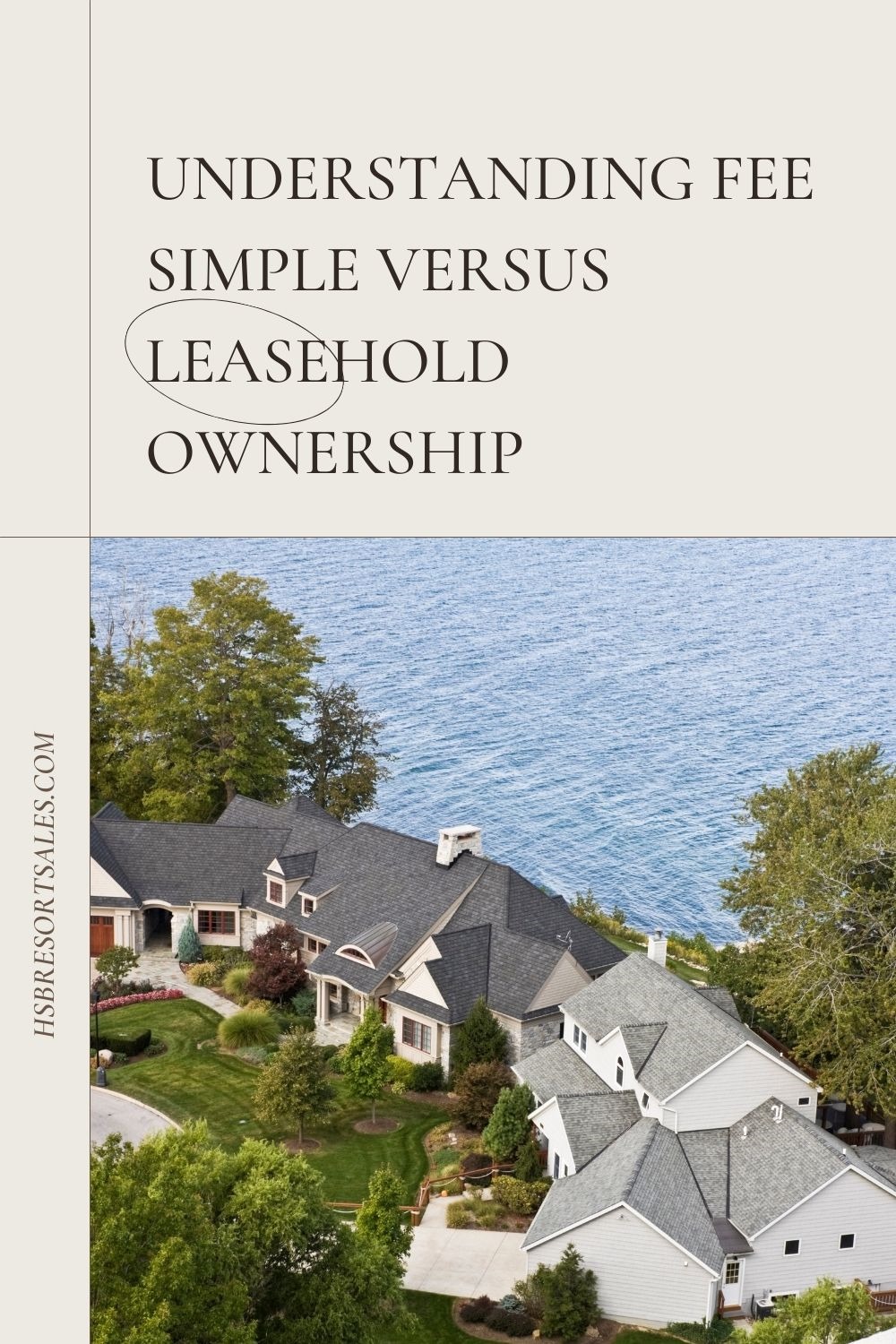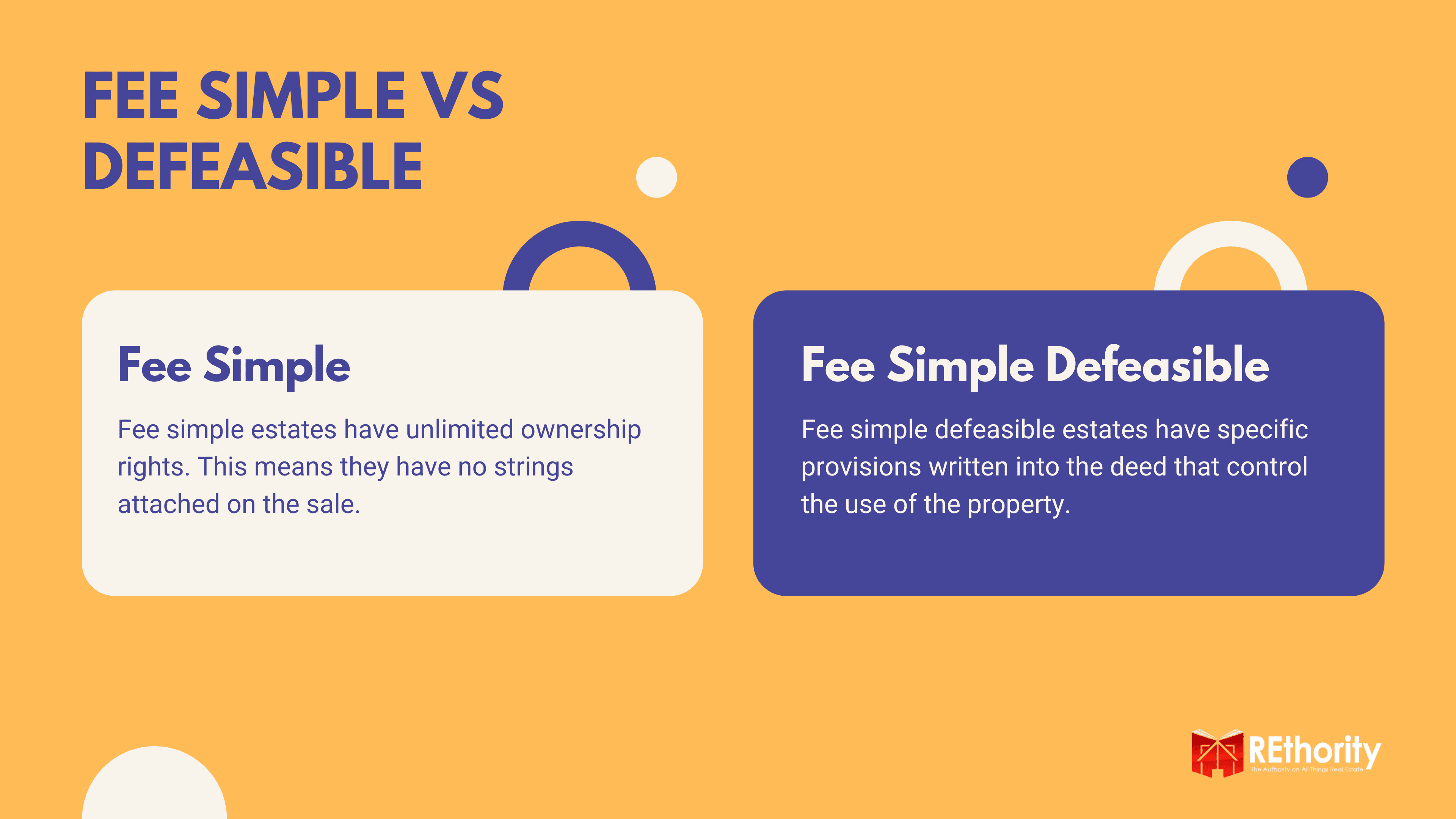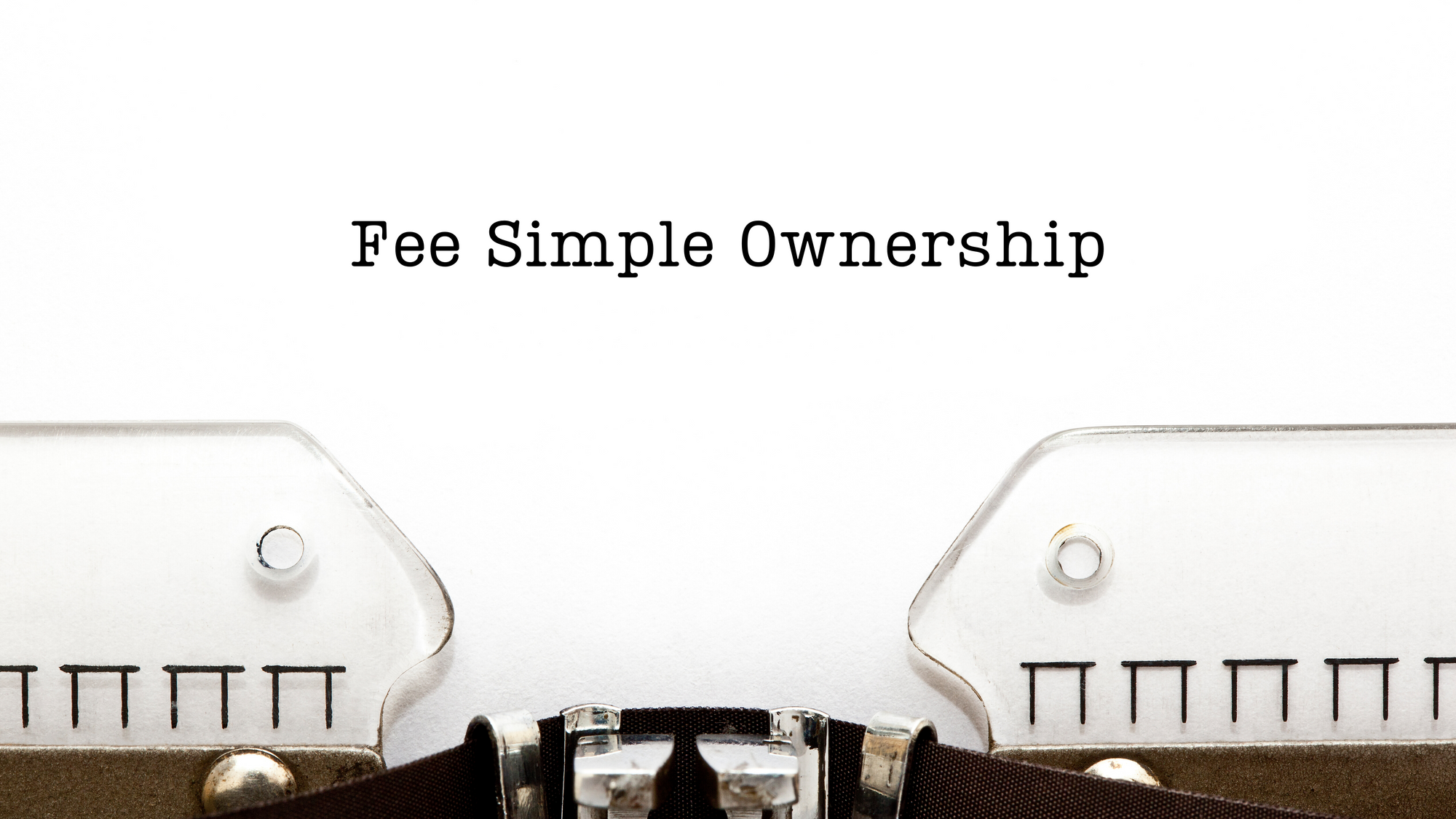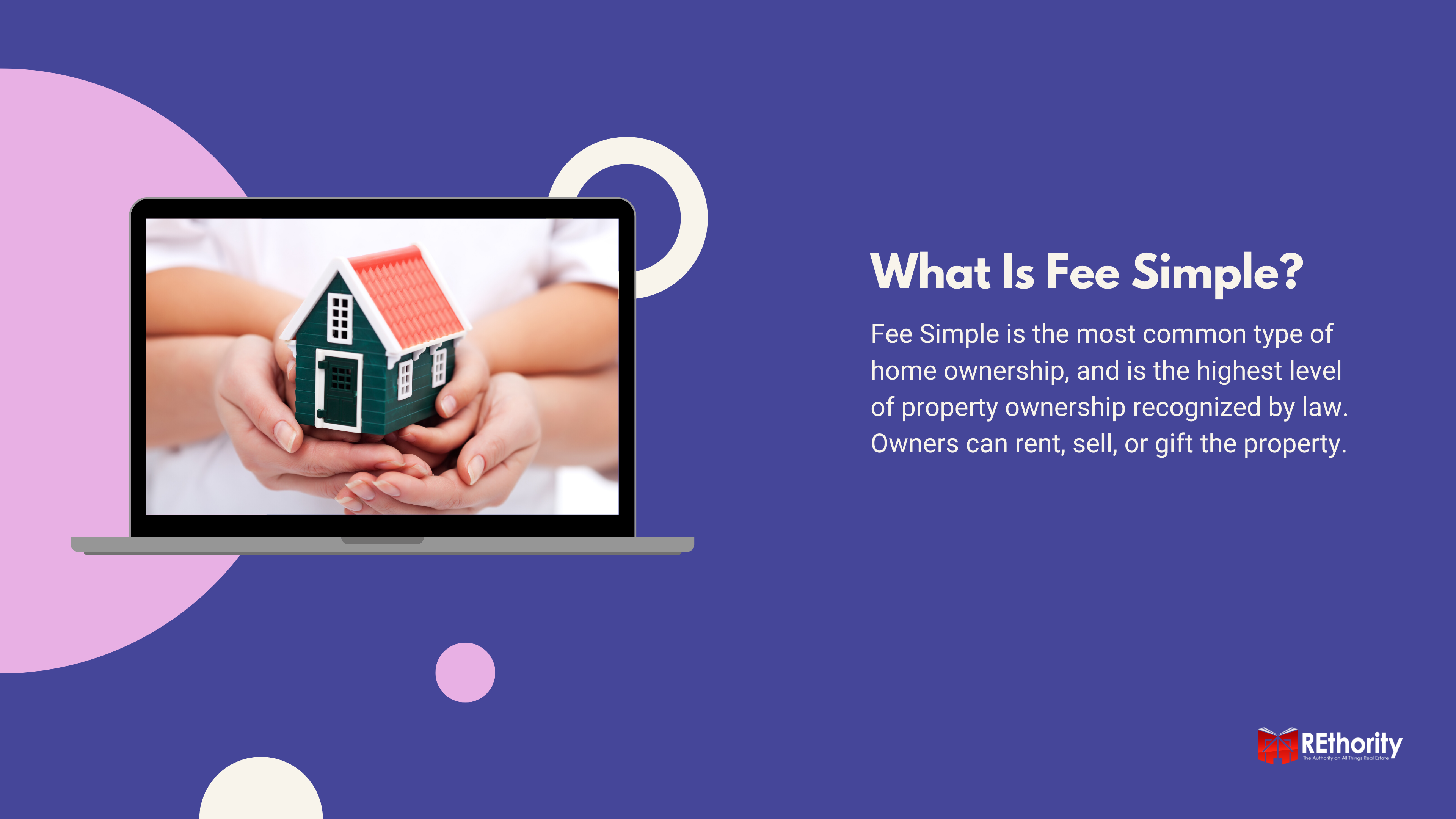Understanding the differences between leased fee and fee simple ownership is crucial for making informed decisions about real estate investments. Whether you’re a seasoned landlord or a first-time homebuyer, knowing the nuances between these two ownership types can shape your financial strategy and long-term goals.
Understanding the Challenges
When it comes to real estate ownership, a lack of clarity between leased fee and fee simple ownership can lead to confusion, legal disputes, and financial implications. Understanding these differences empowers you to navigate the real estate market with confidence, making informed choices that align with your needs and aspirations.
Resolving the Confusion
Leased fee ownership refers to a situation where you own the building or structure on a property, but not the land it’s built on. Fee simple ownership, on the other hand, grants you complete ownership of both the land and the structures on it. This distinction impacts your rights and responsibilities as a property owner significantly.

Fee Simple Ownership Explained – Sprint Finance – Source sprintfinance.com.au
Leased Fee vs. Fee Simple: A Deeper Dive
As mentioned earlier, leased fee ownership involves owning the building but not the land. This is common in commercial properties, such as apartment buildings or shopping centers, where multiple parties may own individual units or spaces within a larger development. With leased fee ownership, you typically pay a monthly or annual ground rent to the landowner, who retains ownership of the land itself.
In contrast, fee simple ownership provides you with complete control and ownership of both the land and the structures on it. This type of ownership is often associated with single-family homes, where you have the exclusive right to use, occupy, and modify the property as you wish. You’re also responsible for property taxes and maintenance.

Understanding Fee Simple versus Leasehold Ownership – Source www.hsbresortsales.com
History and Myths
Historically, leased fee ownership was a way for landowners to retain control of their land while allowing others to develop and utilize it. This arrangement was common in feudal societies, where peasants would lease land from landlords in exchange for a portion of the crops grown on it.
Over time, leased fee ownership has evolved to accommodate various property arrangements. However, myths and misconceptions still surround this ownership type. Some believe that leased fee ownership is inferior to fee simple ownership, which is not necessarily true. Understanding the specific terms and conditions of each ownership type is important, regardless of whether it’s leased fee or fee simple.

Fee Simple vs Leasehold Ownership – Real Estate Lawyers – Source treadstonelaw.ca
Hidden Secrets
One of the lesser-known benefits of leased fee ownership is the potential for appreciation. While you don’t own the land, the value of your building or structure can increase over time, leading to financial gains. Additionally, leased fee properties often have lower purchase prices compared to fee simple properties, making them more accessible to investors with limited capital.
However, it’s also important to be aware of the potential drawbacks of leased fee ownership. Ground rent payments can increase over time, and you may have limited control over land-related decisions. Reviewing the lease agreement carefully, including any provisions for rent adjustments and renewal options, is essential before committing to a leased fee property.

Leased Fee Vs Fee Simple – Source www.paramountpropertytaxappeal.com
Recommendations
When choosing between leased fee and fee simple ownership, consider your specific needs and financial goals. If you’re looking for a more affordable option or prefer to own only the building, leased fee ownership can be a suitable option.
However, if you value complete control over both the land and the structures and are willing to pay a higher purchase price, fee simple ownership may be a better choice. It’s recommended to consult with a real estate professional or attorney to understand the nuances of each ownership type in the context of your individual situation.

What Is Fee Simple Ownership In Real Estate? – Source rethority.com
Understanding the Legal Framework
Leased fee ownership and fee simple ownership have distinct legal implications. With leased fee ownership, the lease agreement outlines the terms and conditions of your ownership, including the duration of the lease, ground rent payments, and any restrictions or obligations.
Fee simple ownership, on the other hand, is governed by property laws and regulations in your jurisdiction. This type of ownership provides you with a bundle of rights, including the right to possess, use, exclude others from, and transfer your property. Understanding the legal framework surrounding each ownership type is crucial for protecting your rights and interests.

Leased line internet vs broadband understanding the differences – Artofit – Source www.artofit.org
Tips for Success
Whether you’re considering leased fee or fee simple ownership, following these tips can help you make an informed decision:
- Research different properties and ownership types to find one that aligns with your needs.
- Consult with a real estate professional or attorney to understand the legal implications of each ownership type.
- Review the lease agreement carefully if considering leased fee ownership, paying attention to ground rent payments, lease duration, and any restrictions.
- Consider your long-term financial goals and how each ownership type fits into your investment strategy.

Fee Simple vs. Leasehold: Real Estate Ownership In Hawaii – Source howtoliveinhawaii.com
Key Differences to Remember
To summarize the key differences between leased fee and fee simple ownership:
- Leased fee ownership: You own the building or structure, but not the land.
- Fee simple ownership: You own both the land and the structures on it.
- Leased fee ownership: You typically pay a monthly or annual ground rent to the landowner.
- Fee simple ownership: You are responsible for property taxes and maintenance.
- Leased fee ownership: You may have limited control over land-related decisions.
- Fee simple ownership: You have complete control over both the land and the structures.

Fee Simple vs Leasehold, Real Estate Oahu | Kamehameha Realty – Source kamehameharealty.net
Fun Facts
Here are a few fun facts about leased fee and fee simple ownership:
- The Empire State Building in New York City is owned under a leased fee arrangement, with the land leased from Columbia University.
- Many commercial shopping centers are owned under leased fee arrangements, allowing multiple businesses to operate on the same property.
- In some states, leased fee ownership can be passed down through generations, similar to fee simple ownership.

What Is Fee Simple Ownership? – Source www.simpleshowing.com
How to Choose the Right Ownership Type
When choosing between leased fee and fee simple ownership, consider the following factors:
- Your financial goals: Leased fee ownership may be more affordable in the short term, while fee simple ownership typically provides greater long-term appreciation potential.
- Your risk tolerance: Leased fee ownership carries more uncertainty than fee simple ownership, as ground rent payments and lease terms can change over time.
- Your investment horizon: Leased fee ownership may be suitable for short-term investments, while fee simple ownership is often preferred for long-term investments.

What Is Fee Simple Ownership In Real Estate? – Source rethority.com
What If Scenarios
Consider these hypothetical scenarios to better understand the differences between leased fee and fee simple ownership:
- Scenario 1: You’re a real estate investor looking to purchase a commercial property. You find a leased fee property that is priced below comparable fee simple properties. However, the ground rent is scheduled to increase significantly in five years. In this scenario, you may want to carefully consider the long-term financial implications of the increasing ground rent before making a decision.
- Scenario 2: You’re a family looking to purchase a home. You find two properties that meet your needs: one is a fee simple property, and the other is a leased fee property with a ground rent of $500 per month. In this scenario, you would need to factor in the monthly ground rent payment when comparing the two properties and determining which one aligns better with your budget and long-term financial goals.
Listicle of Key Points
Here’s a listicle summarizing the key points about leased fee and fee simple ownership:
- Leased fee ownership is when you own the building or structure, but not the land.
- Fee simple ownership is when you own both the land and the structures on it.
- Leased fee ownership is common in commercial properties, while fee simple ownership is common in single-family homes.
- With leased fee ownership, you typically pay ground rent to the landowner.
- With fee simple ownership, you are responsible for property taxes and maintenance.
- Leased fee ownership may be more affordable in the short term, but fee simple ownership typically provides greater long-term appreciation potential.
- Consider your financial goals, risk tolerance, and investment horizon when choosing between leased fee and fee simple ownership.
Question and Answer
A: The main difference is


